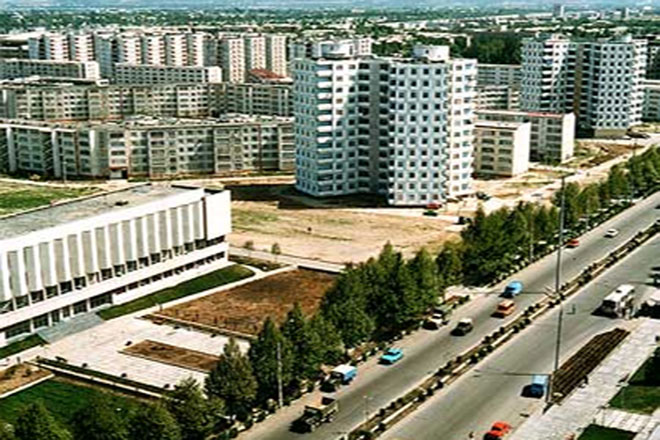Azerbaijan, Baku, Sept.22 / Trend, V.Javoronkova /
Repeat attacks on military convoys in Tajikistan threaten to destabilize the situation in the country, experts believe.
"If more attacks occur in Tajikistan, then the situation will escalate," European expert on Central Asia Ben Judah wrote Trend in e-mail.
The situation in Central Asia remains unstable. According to media, restrictions have been informally introduced on the movement of citizens in the Rasht District. The measure was reportedly introduced as a result of an attack on a military convoy of the Tajik Defense Ministry on Sept. 19. Twenty-five soldiers were killed in the incident, and an investigation is underway.
This is not the first such incident in the country. Last month, another two explosions took place inside a club in Dushanbe and in front of the Department for Combating Organized Crime in Khujand. Two people died and more than 35 were injured.
The consequences of these attacks will depend on further developments in the country, experts believe.
According to Judah, the next few weeks will be key.
According to another European expert on Central Asia, Jana Kobzova, although Tajik President Emomali Rakhmon has managed to consolidate his own position, if continued, such attacks may severely undermine the government's ability to control certain parts of the country.
However, Judah said if Dushanbe manages to prevent at least one such attack in the near future, then this will positively affect its image in the eyes of the population.
"One of the main problems is that Tajikistan is the poorest and one of the most fragile countries in Central Asia, bordering volatile Afghanistan and close to Pakistan," Kobzova wrote Trend in an e-mail.
According to Judah, there is the danger of a spill-over of conflicts within Afghanistan to Tajikistan as NATO begins to withdraw its troops.
Expert opinions differ on which organizations are behind the attacks.
According to U.S. expert on Central Asia Dex Torricke-Barton, it is unlikely that the recent attacks in Tajikistan are part of a coordinated strategy by Islamist militants.
"Some perpetrators may be fighting for ideological reasons," he told Trend. "However, I would caution against labeling all militants as Islamists."
According to Torricke-Barton, some fighters are motivated primarily by local concerns. The attack on the military convoy may have been retaliation for government attempts to impose greater authority over the Rasht Valley.
"There appears to be little popular sympathy for the militants' campaigns, and I think that they will struggle to destabilize the country - even if the attacks continue," he said.
According to Judah, the attacks are the latest outbursts of violence in a low-level civil war in Tajikistan, which has ebbed and flowed over the past decade.
"Some fighters that opposed the current government in the civil war in the 1990s never accepted their defeat and have engaged in attempts to undermine the authorities in Dushanbe ever since," he said.
The government blames the forces of Mullo Abdullo - a mysterious and charismatic insurgent who was the leader of the United Tajik Opposition in the 1990s, Judah stressed.
"His forces were driven from Tajikistan in 2000," he said. "He was the rumored to have become involved in the wars in Afghanistan and used the north of the country, which is inhabited mostly by ethnic Tajiks sympathetic with his cause, to launch attacks on territory controlled by Dushanbe."
According to the expert, today's attacks are part of a longer battle between rebel forces and those loyal to the government for control of key strategic regions, which they hope to use as a base for a full-scale insurgency.
"Drug money fuels much conflict in Central Asia, as Tajikistan is the highway for narcotics headed north from Afghanistan towards Russia and then Europe," he said. "The attackers may be hoping to destabilize the government to traffic more narcotics, which finances the insurgents in Afghanistan."






